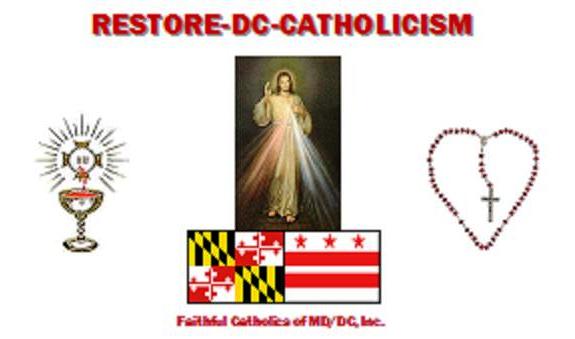Recently a priest in the Diocese of Phoenix resigned after it was discovered that his misuse of pronouns during baptism ceremonies rendered the sacrament invalid. He did this to hundreds of babies over the years. The upshot is that they never received the graces pertaining to baptism. Original sin was not remitted. Subsequent sacraments received by the affected individuals were likewise rendered invalid and perhaps some died in that state.
I'm now going to post some links that give the Church's teachings on the topic of Sacraments, and the Sacrament of Baptism in particular. Please bear in mind that Jesus Christ has empowered the Magisterium over the centuries to pronounce His teachings. Also bear in mind that Sacraments and their attendant graces are objective realities, apart from any experiences or judgments that we may harbor. Please see this, this, and this.
Bishop Olmsted is a bishop who takes his responsibilities seriously. Understanding the spiritual peril in which many of his people were placed, he is taking measures to ensure that as many as possible are notified so that they can receive proper baptisms, confirmations, etc.
This situation is being discussed on social media. On Facebook, I am reading comments that display an abysmal lack of understanding and appreciation of the sacraments. As a summary, I will paraphrase some of the opinions that seem to be prevalent:
- God only cares about the intention of those involved
- This is not a big deal.
- The bishop is nit-picking
- It is cruel to exclude these people from the Church
All of these statements display common erroneous mind-sets. They are evaluating baptism from the stance of mere subjective experience. They deem the badly-administered sacrament to be valid because of "trauma" that some might experience, utterly disregarding the fact that sacraments are objective realities that are independent of their opinions.
As we understand in the reading of the links, the reality of the Sacraments hinges on three things: intent, matter and form. A defect in any one of those things will render the sacrament invalid. These other people seem to appreciate intent, but have little disregard for form. That parish priest uttered the words "we baptize you" instead of "I baptize you", undermining the understanding that it is Christ who baptizes through the priest.
I don't know the ages of these people, but I strongly suspect that their Catholic education was compromised by the proceeds of Vatican II. Mine was, but my earlier years weren't. They gave me some decent frame of reference that served to at least partially shield me from some of the pernicious modernist lies. Later on I embarked on some self-reading and education, still ongoing, to rid my mind of lingering nonsense.
I say that because if someone can dismiss the Church's emphasis on proper form as "nitpicking" and "legalism", they simply did not receive a decent Catholic education. I hope it is that, for if they do know the Church's centuries-old teaching on these matters and still scoff at them, they place their souls in danger. I and some others actually posted links to Church teaching, most of which were summarily dismissed. As long as Catholics insist on elevating their own emotions above what Our Lord objectively teaches, we will see much of the Church collapse like a house of cards. The rest of us must continue to pray and to speak the truth, regardless of the mockery that comes our way.








I do not understand. "I baptize you in the name of the Father, the Son, and the Holy Spirit." The Son is referred to in the third person, so how can the "I" be the Son in the same sentence? "I" refers to the person conferring the Baptism. Substituting "We" may be illicit - but it only alters the reference to the person giving the Baptism - not the reference to God - in any of the three persons. Further, if the "I" refers to Jesus - Jesus can licitly refer to himself either as the royal "We" - he is King of Kings - or as "We" the Trinity.
ReplyDeleteLeszek, that specific language is the teaching of the Church. Any questions might be better referred to a solid priest (as opposed to an overly casual sort) if the links that I provided don't suffice.
Delete